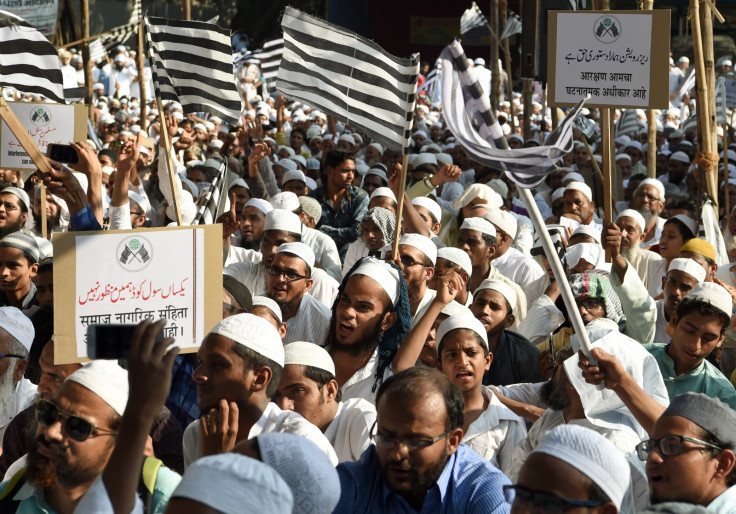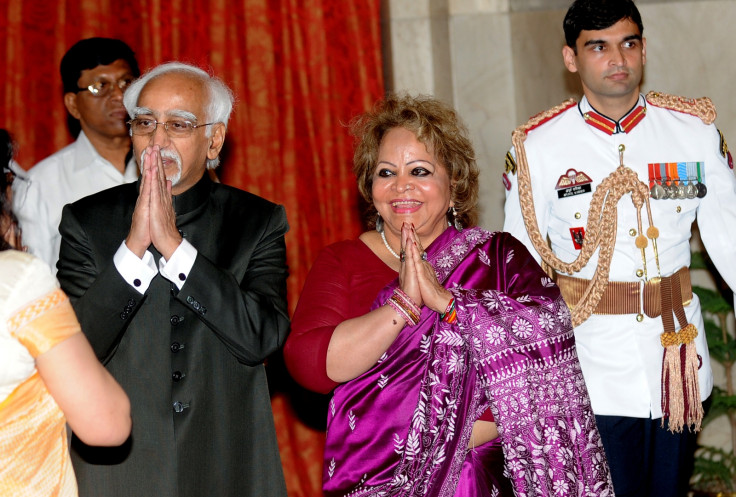Banning 'triple talaq' divorces is India's first step to giving Muslim women their rights back
India's Supreme Court ruled that the controversial divorce practice is unconstitutional on 22 August.

The Supreme Court of India ruled on 22 August that the controversial divorce practice of triple talaq, which allows a Muslim man to divorce his wife by simply repeating the word 'talaq' - divorce in Arabic - three times, is unconstitutional. The judgment upheld the democratic rights of Indian Muslim women and reiterated our belief that it has no sanction in the Quran and does not form an integral part of Islam.
The Quran gave equal rights to women 1400 years ago and yet it is only after 70 years of India's independence that Muslim women got legal justice. The brand of secularism practised by political parties and governments in India has ensured continuous legal discrimination of Muslim women.
The judgment is a historical landmark for Indian democracy.
Indian Muslims have lacked visionary and democratic social leaders since 1947. As a result, the conservative patriarchal religious bodies appointed themselves as spokespersons of the entire community.
Rather than making the masses aware about Quranic injunctions of gender justice, these patriarchal religious bodies have worked to generate a common sense that a man is superior to a woman. They have invented half-truths and lies to find religious evidence for their male-dominated worldview. Practices such as triple talaq prevail in our society thanks to their support.
The political parties have built an alliance of convenience with these conservative religious forces. This brand of secularism has been practised to the utter detriment of gender equality for Muslim women. But this began to change when we first made a demand for the abolition of triple talaq in 2012.
The Bharatiya Muslim Mahila Andolan (BBMA) party, which fights for the rights of Muslims in India, was left with little choice but to take up the issue of triple talaq as we knew that it violates Quranic principles. Our campaign included building education in the community. Thousands of women and some men received training about the Quranic teachings pertaining to gender justice.
Public opinion was built around the view that triple talaq is un-Quranic and unconstitutional. We put forth verses from the Quran which showed that women and men are equal in the eyes of Allah. We also argued that triple talaq is unconstitutional according to several legal articles that uphold gender justice and gender equality.

Cynics have been saying that triple talaq is a non-issue but our ground level work across different states in India speaks to the contrary. Two nationwide research studies revealed that triple talaq is the commonest method of divorce in India. Out of the 525 divorcee women who spoke to us, 408 were divorced through triple talaq.
Over 500 women from different parts of India attended the national public hearing in December 2012 calling for the practice to be banned.
Triple talaq rendered women and their children homeless in an instant. Some of the women said they approached a Qazi or a religious body for help but were told that once uttered the talaq is final and irrevocable.

This judgment is testimony to the maturing of Indian democracy. It is a first step towards bringing about gender justice for Muslim women, the country's largest minority that lives in poverty, educational backwardness and insecurity.
We are emboldened to think that this may well be the first step in the significant journey of social reform within the Indian Muslim community.
However, a lot remains to be achieved still as legal reform is part of a much larger process of social reform. Taking forward the judgment and its implications in the community, especially among young women and men, is crucial.
Zakia Soman is an Indian women's rights activist and the co-founder of the Bharatiya Muslim Mahila Andolan (BBMA) party which fights for the rights of Muslims in India.
© Copyright IBTimes 2025. All rights reserved.






















